A Buyer Agency Agreement is a legal document that establishes a formal relationship between a buyer and a real estate agent. This agreement outlines the responsibilities of both parties and outlines the terms and conditions under which the real estate agent will represent the buyer in the purchase of a property.
The agreement specifies the type of services the agent will provide, such as searching for properties, negotiating with sellers, and assisting with the closing process. In essence, a Buyer Agency Agreement is a crucial step in the home-buying process, as it ensures that the buyer’s interests are protected and that they receive the support they need to make a successful purchase.
Table of Contents
Buyer’s Agency Agreement Templates
Buyer’s agency agreement templates are pre-designed documents that provide a framework for establishing a formal agreement between a buyer and a real estate agent or agency. These templates outline the terms and conditions under which the agent will represent and assist the buyer in purchasing a property.
Buyer’s agency agreement templates typically include sections that define the scope of the agent’s services, duration of the agreement, buyer’s obligations, compensation terms, and any specific provisions or conditions relevant to the buyer-agent relationship.
Using a buyer’s agency agreement template helps ensure clarity and mutual understanding between the buyer and the agent regarding their rights, responsibilities, and expectations throughout the property buying process. It provides a written contract that protects the interests of both parties and sets the foundation for a professional and transparent working relationship.
Importance of Buyer Agency Agreement

The Buyer Agency Agreement is an important document in the home-buying process for several reasons. Firstly, it clarifies the roles and responsibilities of both the buyer and the real estate agent, ensuring that there is a clear understanding of what each party is expected to do. This can help to avoid misunderstandings and conflicts down the road. Secondly, the agreement outlines the terms and conditions of the representation, including the length of the agreement, the type of services the agent will provide, and the compensation the agent will receive. This can help to ensure that the buyer is getting the most value for their money.
Another important aspect of the Buyer Agency Agreement is that it establishes a fiduciary relationship between the buyer and the agent. This means that the agent has a legal obligation to act in the best interests of the buyer and to put their needs first. This can provide peace of mind for the buyer, knowing that their agent is working solely for their benefit.
Finally, the Buyer Agency Agreement is a legally binding document that provides protection for both the buyer and the agent. In the event of a dispute, the agreement can serve as evidence of the terms and conditions of the representation, making it easier to resolve any issues.
What’s Included in a Buyer’s Agent Agreement?
A Buyer’s Agent Agreement typically includes the following key elements:
Description of services: The agreement outlines the type of services the agent will provide to the buyer, such as searching for properties, negotiating with sellers, and assisting with the closing process.
Duration of agreement: The agreement specifies the length of time that the agent will represent the buyer, which is usually until the successful purchase of a property or a specified time period.
Compensation: The agreement details the compensation that the agent will receive for their services, including any commission or fees that may be due.
Confidentiality: The agreement typically includes a confidentiality clause, which requires the agent to keep any confidential information about the buyer confidential, unless required by law.
Exclusive representation: The agreement may state that the agent will have exclusive representation of the buyer, meaning that the buyer cannot work with another agent without first terminating the agreement.
Termination: The agreement includes provisions for termination, specifying the conditions under which either party can end the agreement.
Disclaimer of warranties: The agreement may include a disclaimer of warranties, which states that the agent is not making any representations or warranties about the properties they show to the buyer.
Indemnification: The agreement may require the buyer to indemnify the agent against any claims or damages that may arise in connection with the representation.
Governing law: The agreement includes provisions specifying the governing law and jurisdiction that will apply in the event of a dispute.
Types of Buyer Agent Agreements
There are several types of real estate buyer’s agreement, including:
Exclusive Buyer’s Agency Agreement
An Exclusive Buyer’s Agency Agreement is a type of real estate buyer’s agreement that provides for exclusive representation of the buyer by the real estate agent. In this type of agreement, the agent is obligated to act solely on behalf of the buyer and to put their interests first.
Under an Exclusive Buyer’s Agency Agreement, the agent will be responsible for searching for properties that meet the buyer’s criteria, negotiating with sellers on the buyer’s behalf, and assisting with the closing process. The agreement specifies the length of time that the agent will represent the buyer and the compensation the agent will receive for their services.
One of the key benefits of an Exclusive Buyer’s Agency Agreement is that the buyer has a dedicated agent who is working solely for their benefit. The agent is required to maintain confidentiality, disclose any material facts about the properties they show to the buyer, and act in accordance with the buyer’s instructions.
In order to enter into an Exclusive Buyer’s Agency Agreement, the buyer must sign the agreement and provide any necessary compensation to the agent. The agreement is a legally binding document that provides protection for both the buyer and the agent.
Non-Exclusive Buyer’s Agency Agreement
A Non-Exclusive Buyer’s Agency Agreement is a type of real estate buyer’s agreement that allows the buyer to work with multiple real estate agents at the same time. In this type of agreement, the agent is not obligated to act solely on behalf of the buyer, and the buyer is free to work with other agents as well.
Under a Non-Exclusive Buyer’s Agency Agreement, the agent will be responsible for assisting the buyer with the property search and negotiation process. The agreement specifies the length of time that the agent will provide services to the buyer and the compensation the agent will receive for their services.
One of the key benefits of a Non-Exclusive Buyer’s Agency Agreement is that the buyer has the flexibility to work with multiple agents and can choose the agent that best meets their needs. The buyer is not obligated to work exclusively with one agent, and can choose to terminate the agreement at any time.
In order to enter into a Non-Exclusive Buyer’s Agency Agreement, the buyer must sign the agreement and provide any necessary compensation to the agent. The agreement is a legally binding document that provides protection for both the buyer and the agent.
In conclusion, a Non-Exclusive Buyer’s Agency Agreement is a useful option for buyers who want the flexibility to work with multiple agents and who do not want to be tied to one agent exclusively. This type of agreement allows the buyer to work with multiple agents and to choose the one that best meets their needs.
Dual Agency Agreement
A Dual Agency Agreement is a type of real estate buyer’s agreement that occurs when a single real estate agent represents both the buyer and the seller in the same transaction. In this type of agreement, the agent is obligated to maintain impartiality and fairness to both parties.
Under a Dual Agency Agreement, the agent is responsible for facilitating communication between the buyer and the seller and negotiating the terms of the transaction on behalf of both parties. The agreement specifies the length of time that the agent will provide services to both the buyer and the seller and the compensation the agent will receive for their services.
One of the key challenges of a Dual Agency Agreement is the potential for conflicts of interest to arise. The agent must maintain impartiality and act in the best interests of both parties, which can be difficult. In some cases, dual agency can lead to a reduction in the level of representation that the buyer and the seller receive.
In order to enter into a Dual Agency Agreement, both the buyer and the seller must sign the agreement and provide any necessary compensation to the agent. The agreement is a legally binding document that provides protection for both the buyer and the seller.
One-Time Consultation Agreement
A One-Time Consultation Agreement is a type of real estate buyer’s agreement that provides for a one-time consultation between the buyer and the real estate agent. In this type of agreement, the agent is not obligated to represent the buyer in any ongoing capacity, but is instead providing a one-time consultation to help the buyer understand the home-buying process and make informed decisions.
Under a One-Time Consultation Agreement, the agent will be responsible for providing the buyer with information about the local real estate market, the home-buying process, and any other relevant information. The agreement specifies the length of the consultation and the compensation the agent will receive for their services.
Limited Service Agreement
A Limited Service Agreement is a type of real estate buyer’s agreement that provides for limited representation from a real estate agent. In this type of agreement, the agent is not providing full-service representation, but is instead offering specific, limited services to the buyer.
Under a Limited Service Agreement, the agent will be responsible for providing the buyer with specific, agreed-upon services. These services might include assistance with finding properties, providing information about the local real estate market, or helping the buyer negotiate the terms of a purchase agreement. The agreement specifies the services that the agent will provide and the compensation the agent will receive for their services.
One of the key benefits of a Limited Service Agreement is that the buyer can receive specialized assistance with specific aspects of the home-buying process without committing to full-service representation. This can be a cost-effective way for the buyer to receive the help they need while still maintaining control over the process.
In order to enter into a Limited Service Agreement, the buyer must sign the agreement and provide any necessary compensation to the agent. The agreement is a legally binding document that provides protection for both the buyer and the agent.
How do I get out of a buyers agency agreement?
There are several ways to get out of a buyer’s agency agreement, depending on the specific terms of the agreement and the circumstances involved. Below are some of the most common methods for terminating a buyer’s agency agreement:
Termination by mutual agreement: If both the buyer and the agent agree to terminate the agreement, they can do so by signing a written termination agreement. This is often the simplest and most straightforward way to end the agreement.
Termination by expiration: If the agreement includes a specific expiration date, it will automatically terminate on that date unless renewed or extended by mutual agreement.
Termination by performance: If either the buyer or the agent has fulfilled their obligations under the agreement, the agreement may be considered to have been fulfilled and may terminate.
Termination by breach of contract: If either the buyer or the agent breaches the terms of the agreement, the other party may have the right to terminate the agreement.
Termination by written notice: In some cases, the agreement may include provisions that allow either the buyer or the agent to terminate the agreement by providing written notice to the other party.
FAQs
Is a buyer’s agency agreement legally binding?
Yes, a buyer’s agency agreement is a legally binding contract. It establishes the terms of the agency relationship between the buyer and the real estate agent, and both parties are obligated to fulfill their responsibilities as set forth in the agreement.
Can a buyer’s agency agreement be cancelled?
Yes, a buyer’s agency agreement can be cancelled, but the specific method for cancelling the agreement will depend on the terms of the agreement and the circumstances involved. In general, buyer’s agency agreements can be cancelled by mutual agreement, by expiration, by performance, by breach of contract, or by written notice.
How long does a buyer’s agency agreement last?
The length of a buyer’s agency agreement can vary, but most agreements last between 3 and 12 months. The exact length of the agreement will depend on the terms of the agreement and the circumstances involved.
How much does a buyer’s agency agreement cost?
The cost of a buyer’s agency agreement can vary, but most agreements do not require the buyer to pay any upfront fees. Instead, the real estate agent’s compensation is typically paid as a percentage of the sales price of the property that the buyer purchases.
Who pays the real estate agent in a buyer’s agency agreement?
In a typical buyer’s agency agreement, the real estate agent is paid by the seller as a commission on the sale of the property. However, in some cases, the buyer may agree to pay the agent directly or to pay a portion of the agent’s commission.
Can a buyer’s agency agreement be modified?
Yes, a buyer’s agency agreement can be modified, but the specific method for modifying the agreement will depend on the terms of the agreement and the circumstances involved. In general, buyer’s agency agreements can be modified by mutual agreement or by written amendment.
What happens if the buyer does not purchase a property?
If the buyer does not purchase a property, the buyer’s agency agreement will typically terminate. However, the exact outcome will depend on the terms of the agreement and the circumstances involved. Some agreements may provide for a specific term, while others may terminate automatically if the buyer does not purchase a property within a specified period of time.






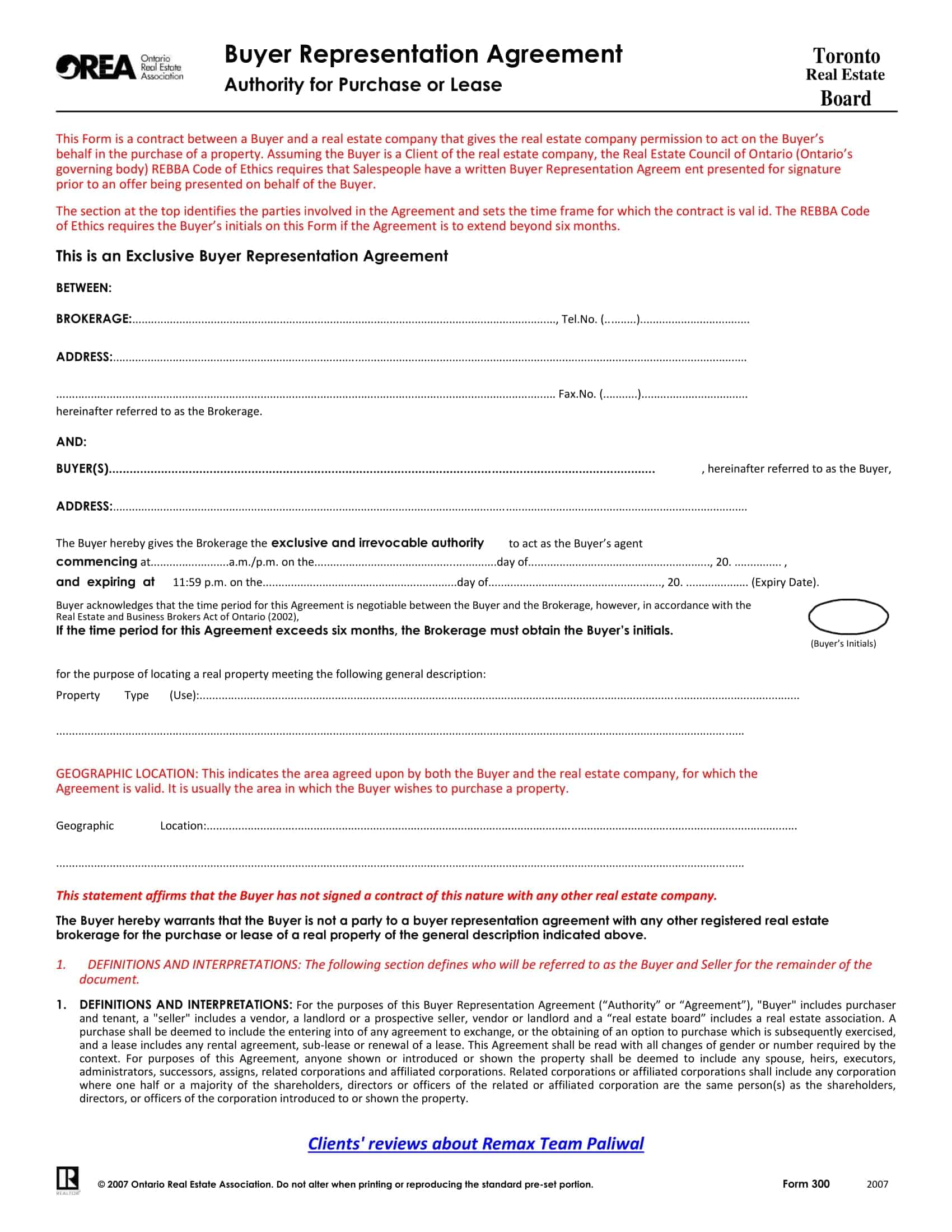


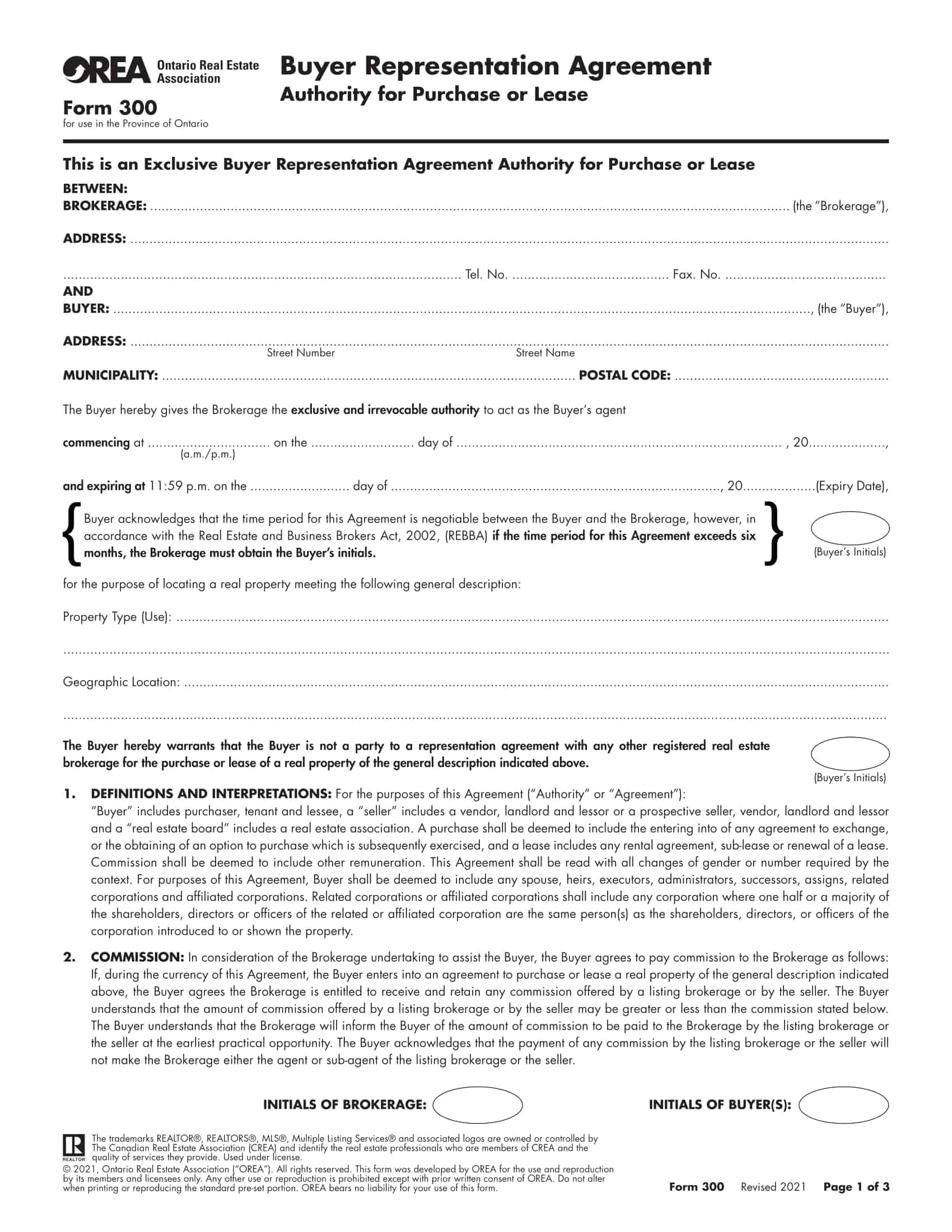


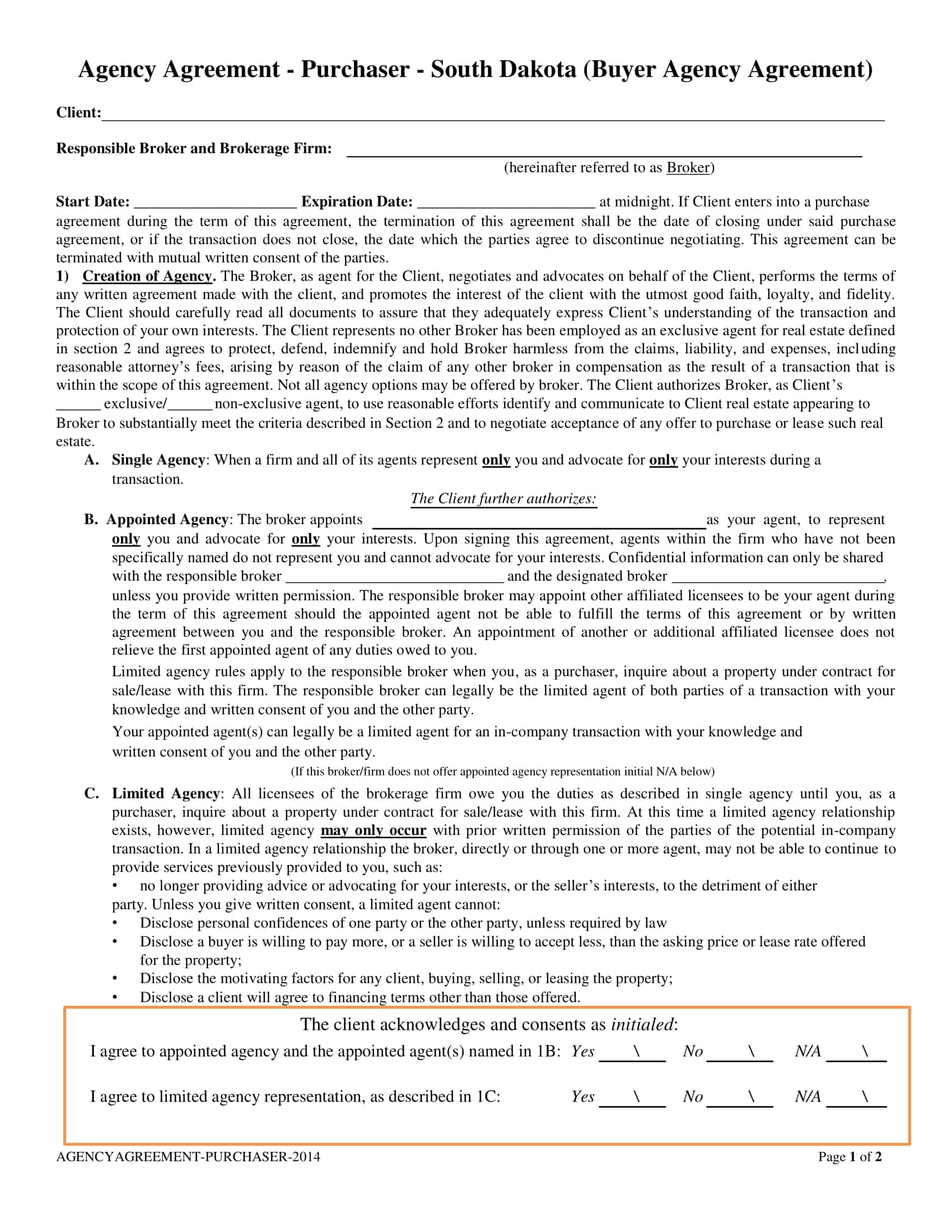

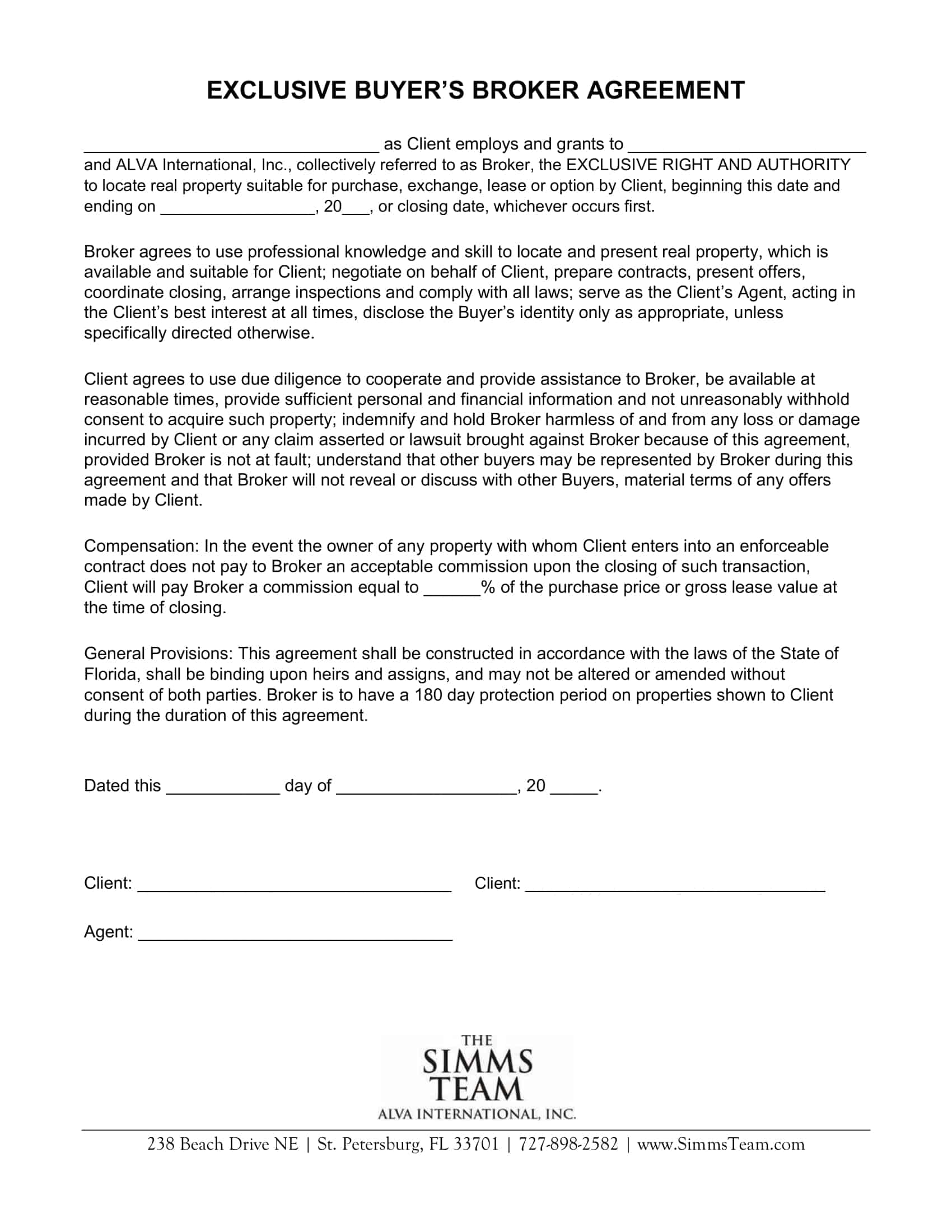

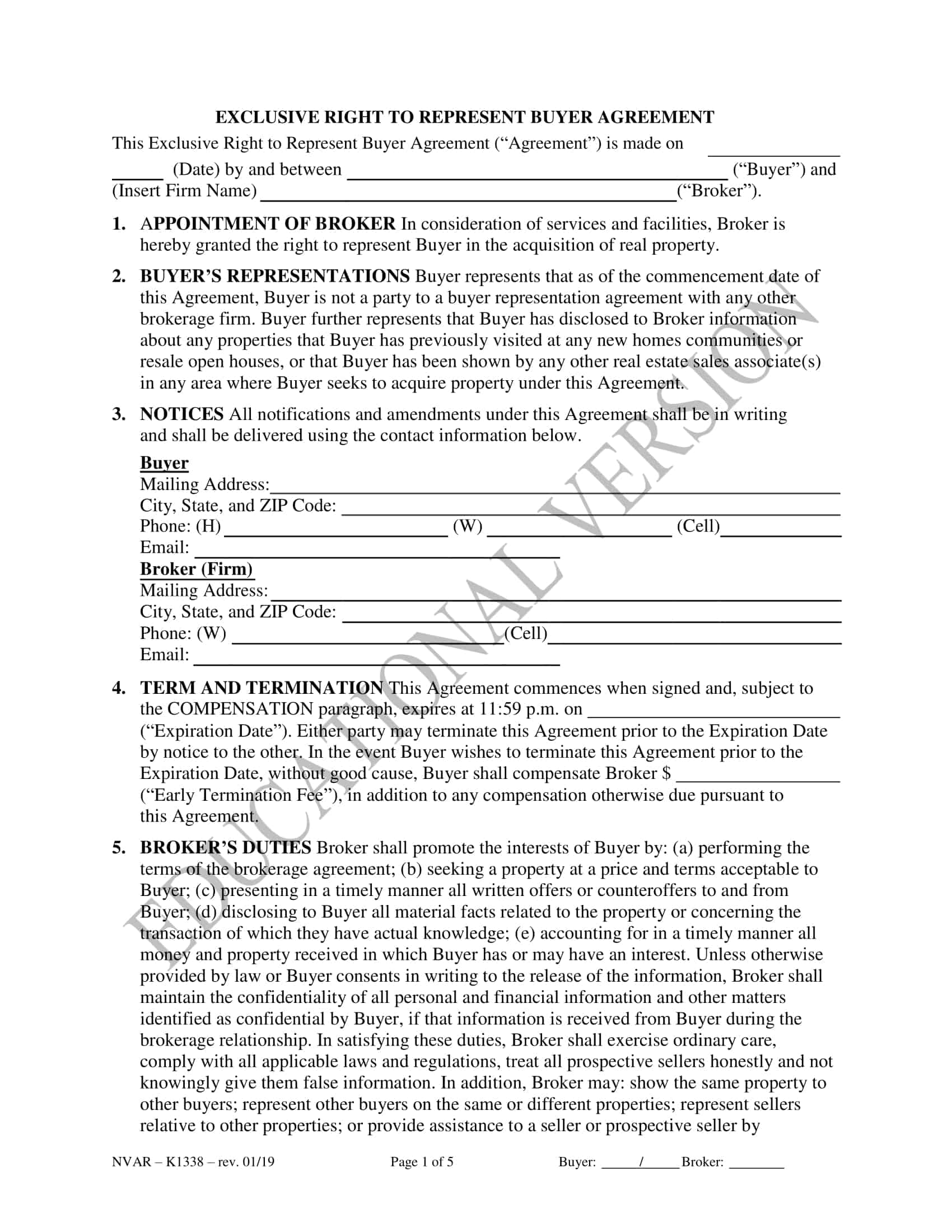
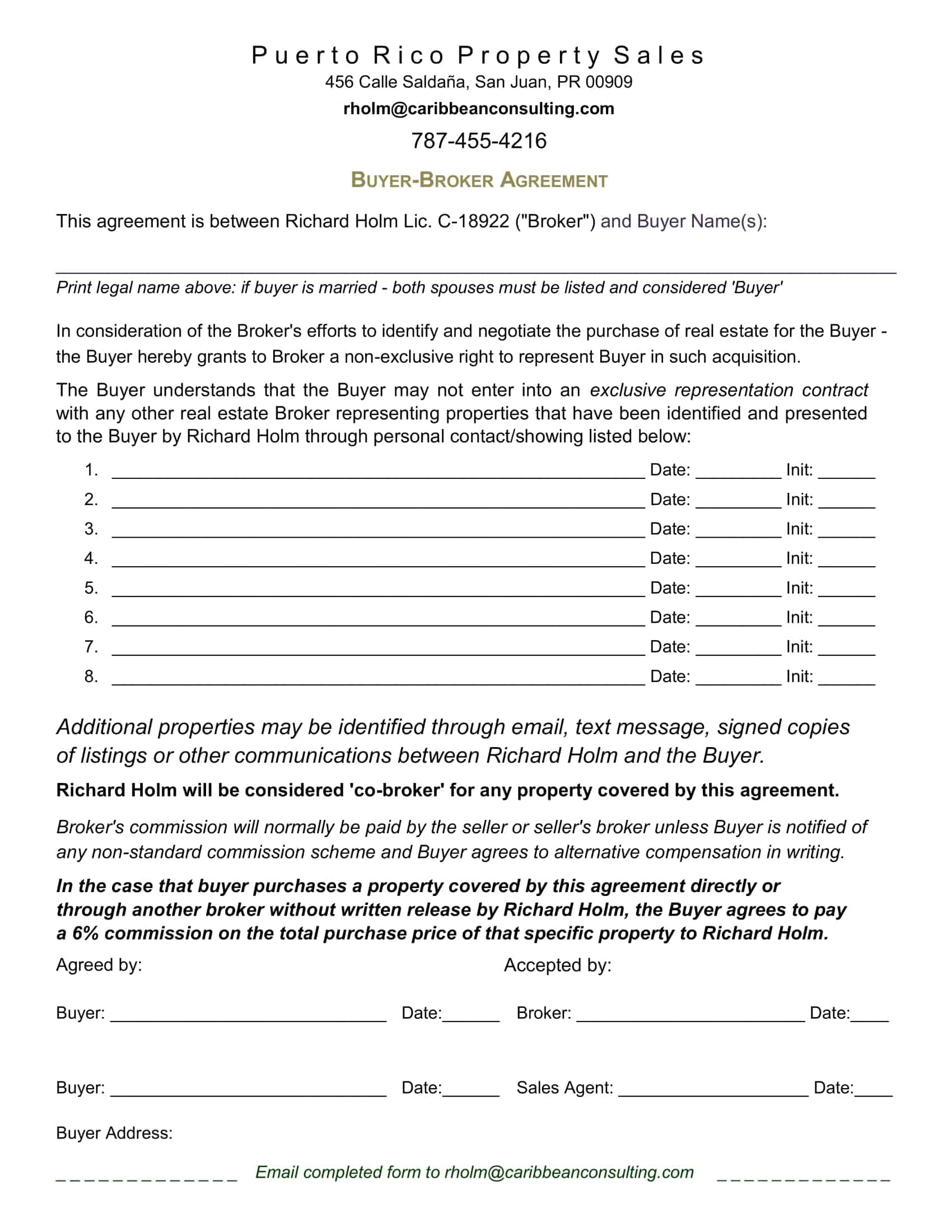
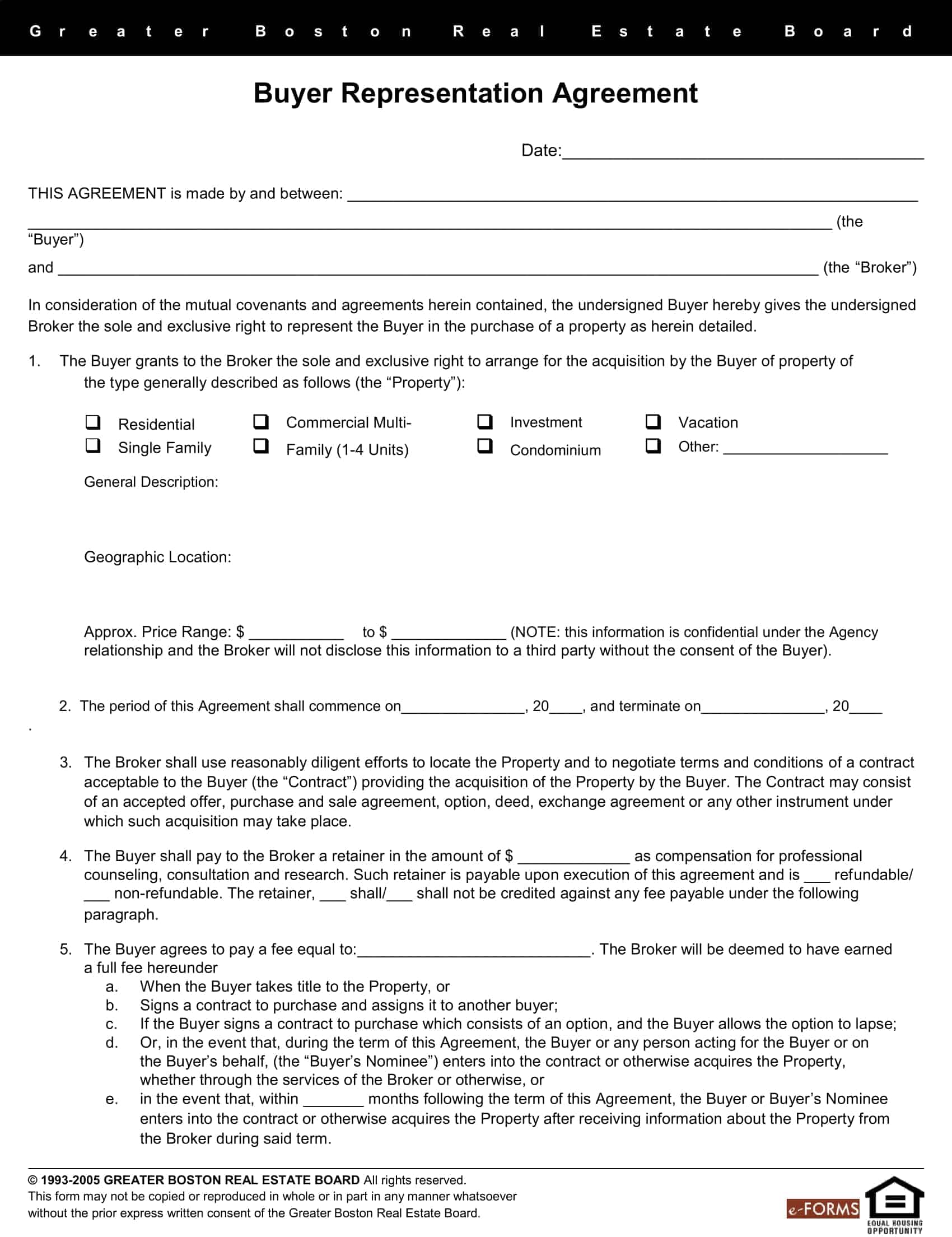

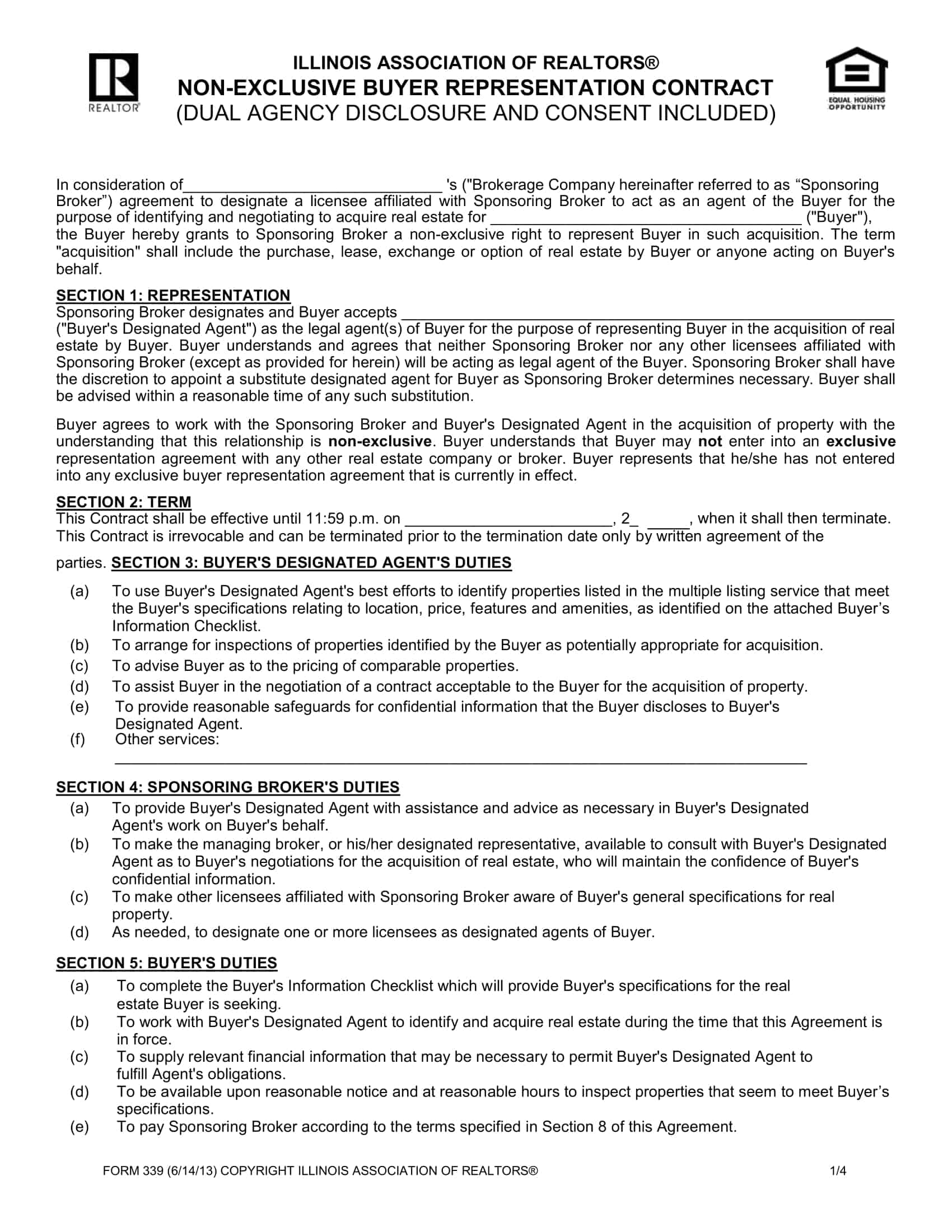
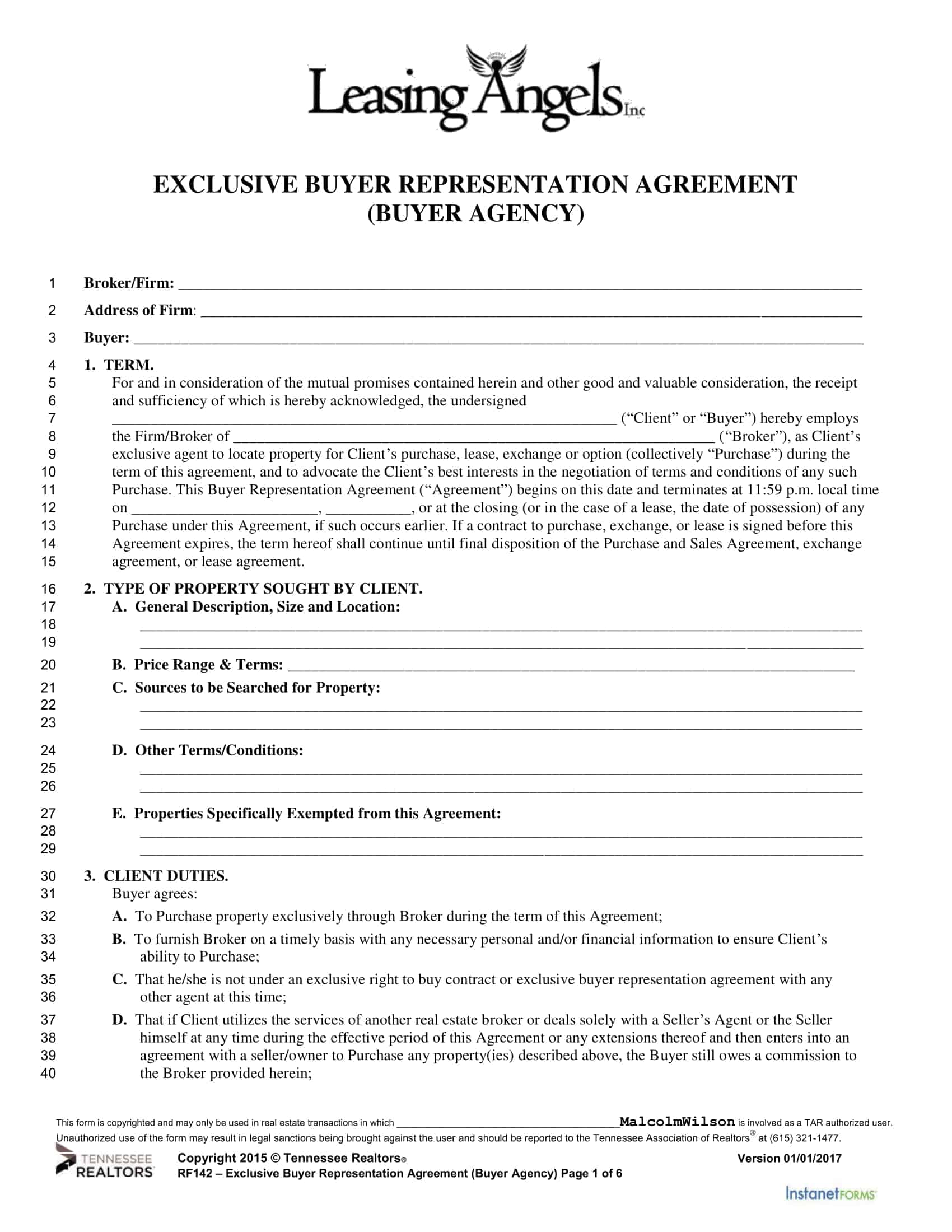
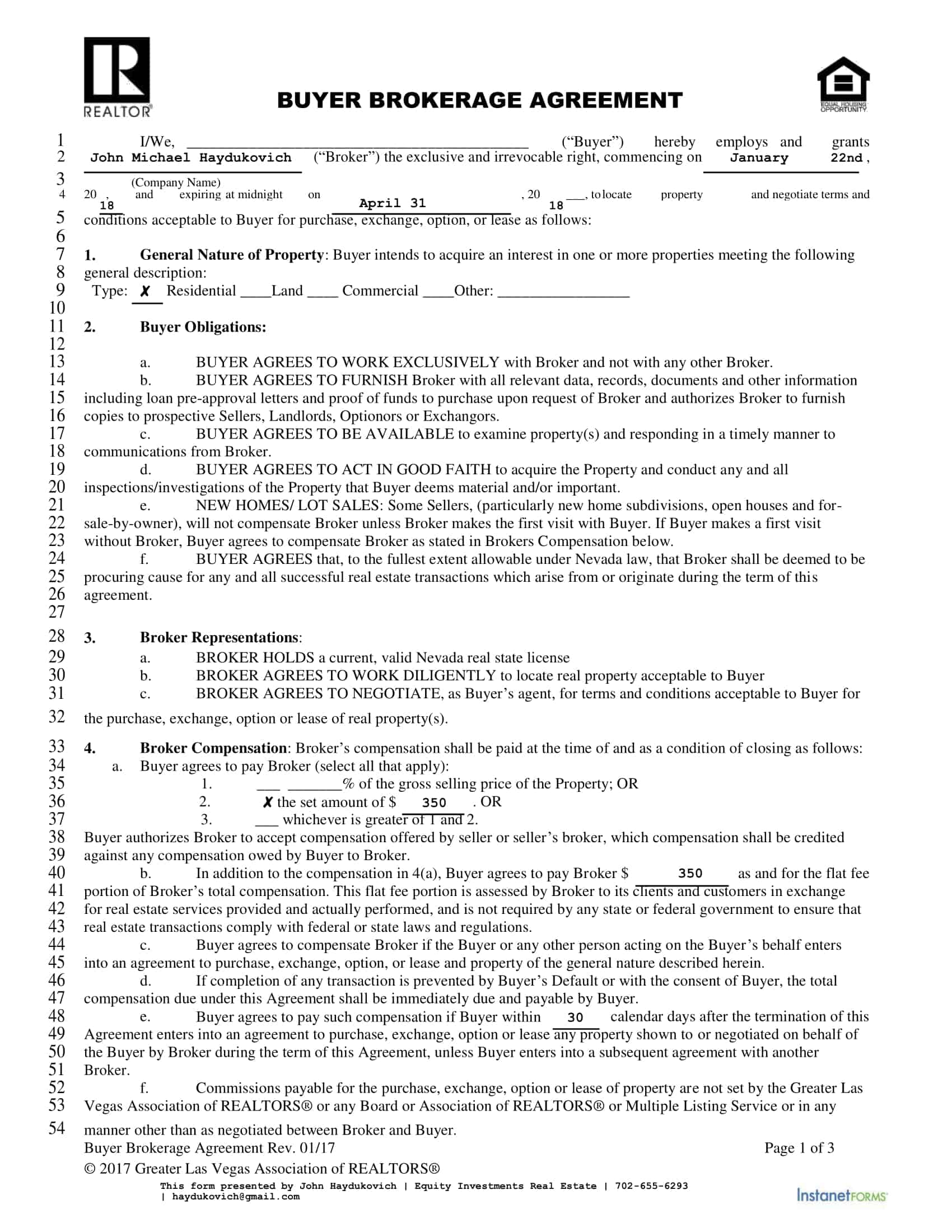
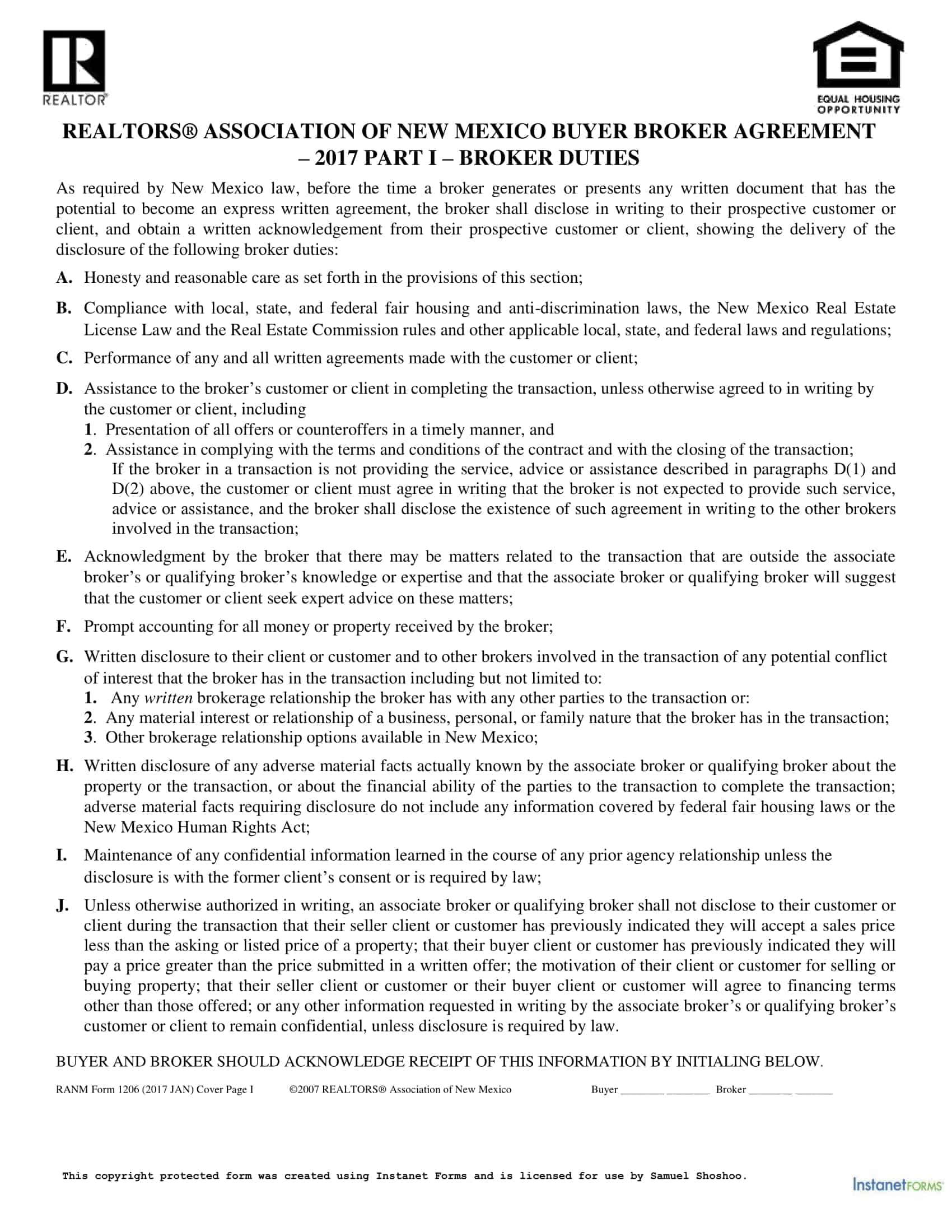

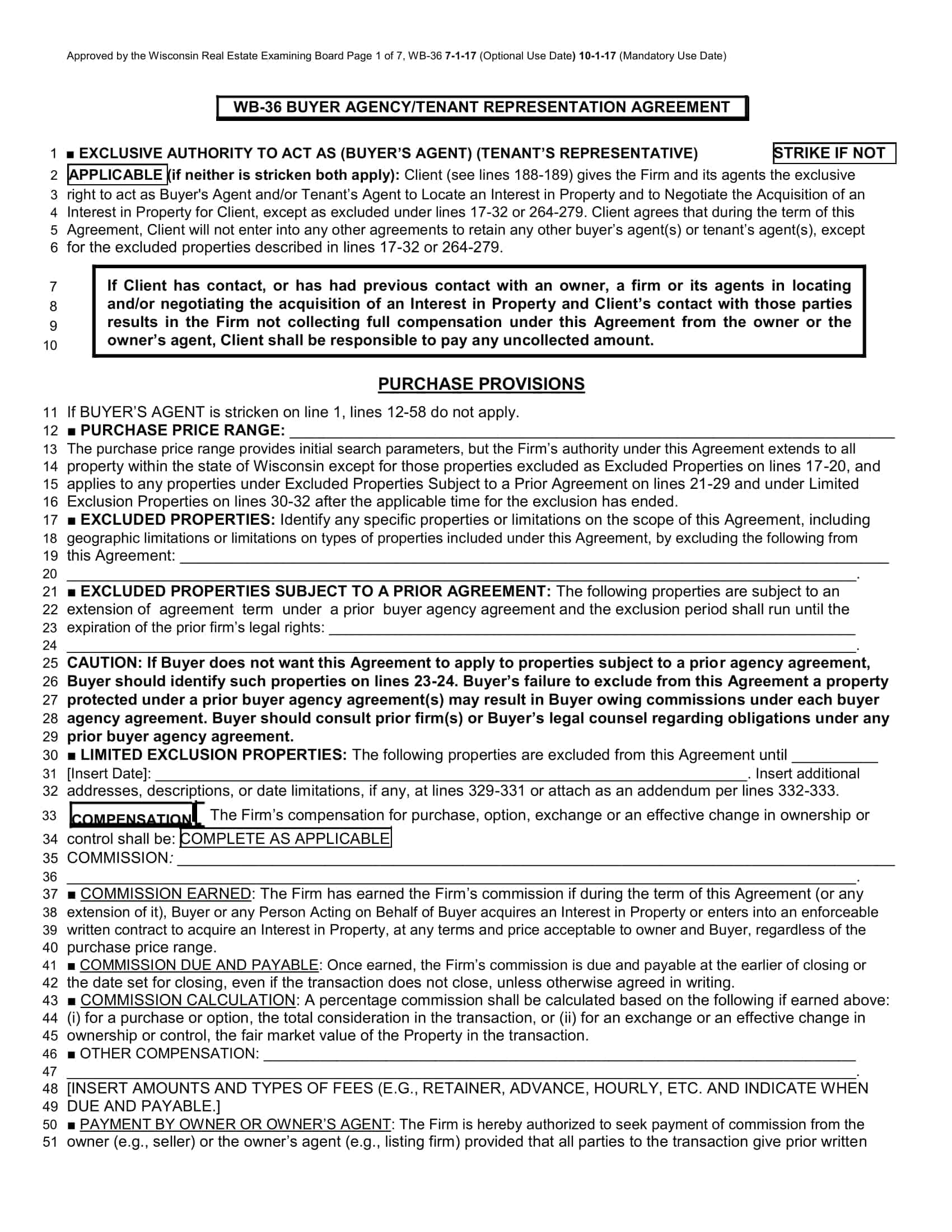

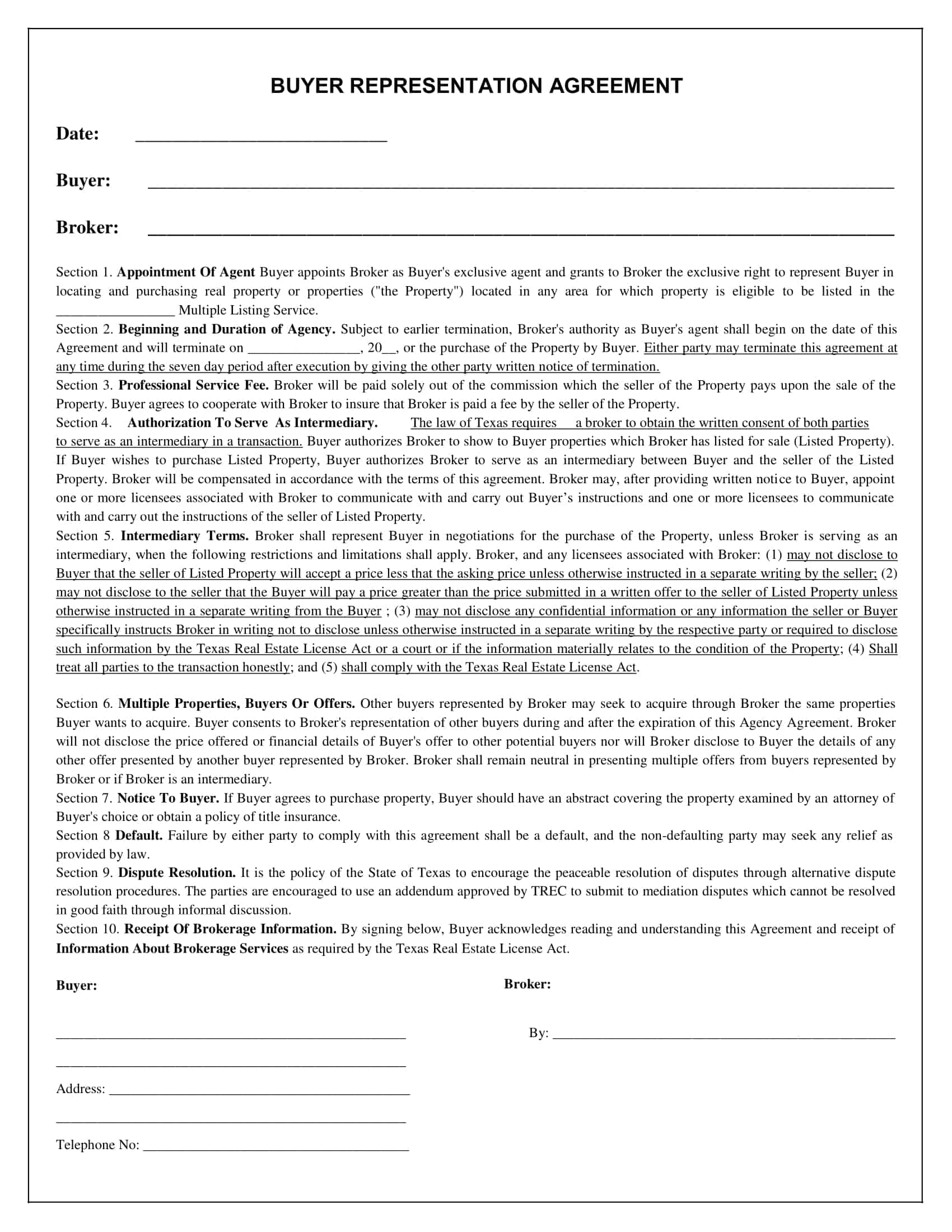





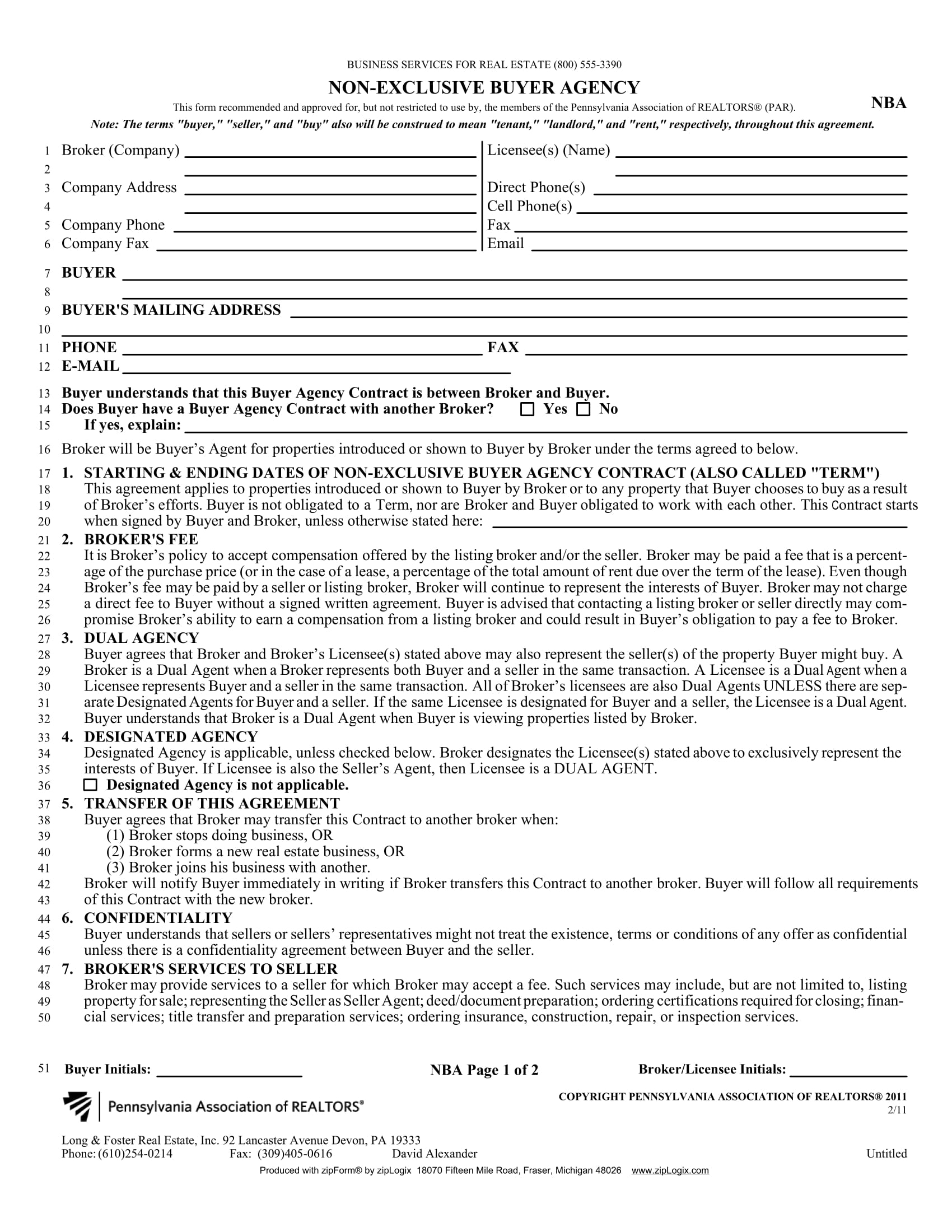



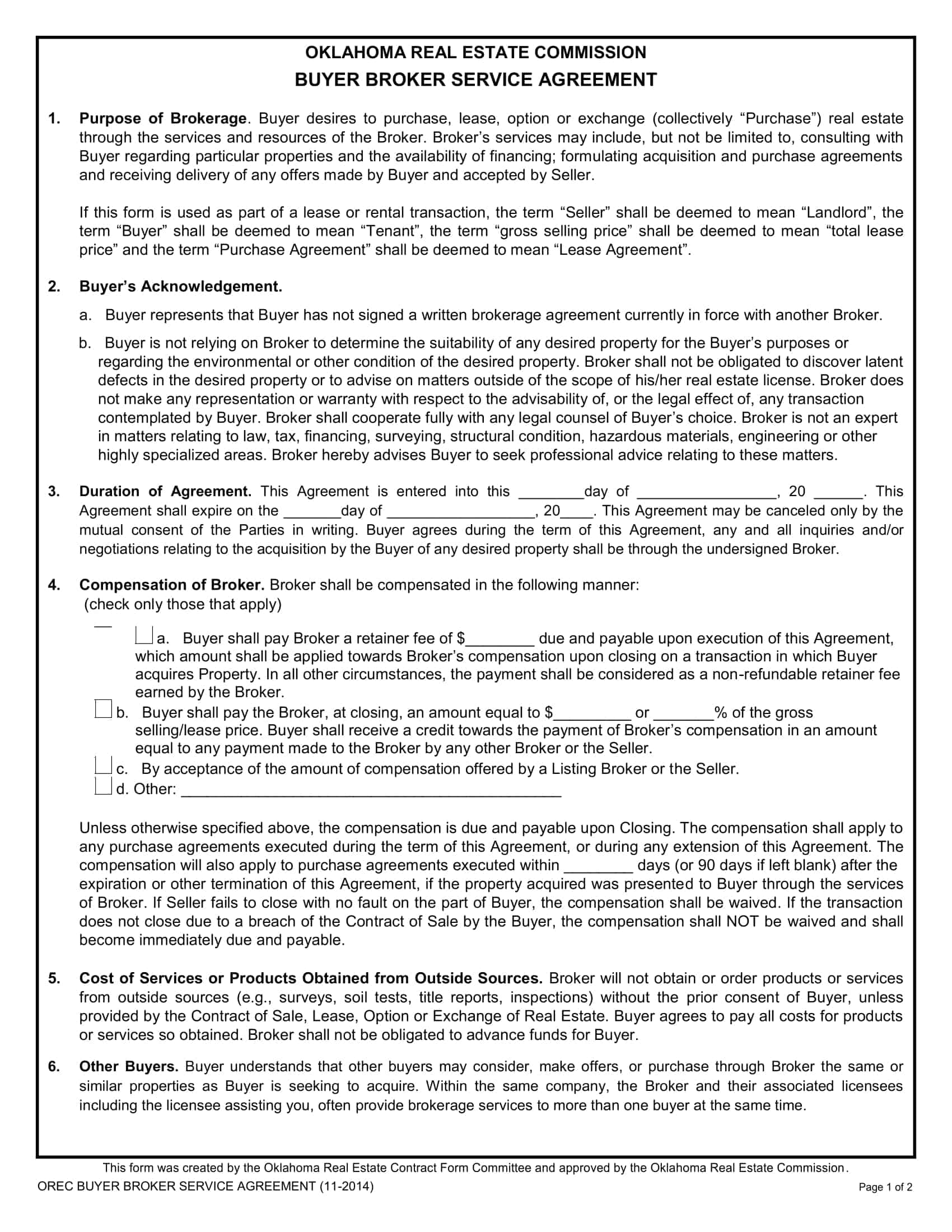







![Free Printable Roommate Agreement Templates [Word, PDF] 1 Roommate Agreement](https://www.typecalendar.com/wp-content/uploads/2023/06/Roommate-Agreement-150x150.jpg)
![Free Printable Payment Agreement Templates [PDF, Word] 2 Payment Agreement](https://www.typecalendar.com/wp-content/uploads/2023/05/Payment-Agreement-1-150x150.jpg)
![Free Printable Separation Agreement Templates [PDF, Word] 3 Separation Agreement](https://www.typecalendar.com/wp-content/uploads/2023/05/Separation-Agreement-1-150x150.jpg)
